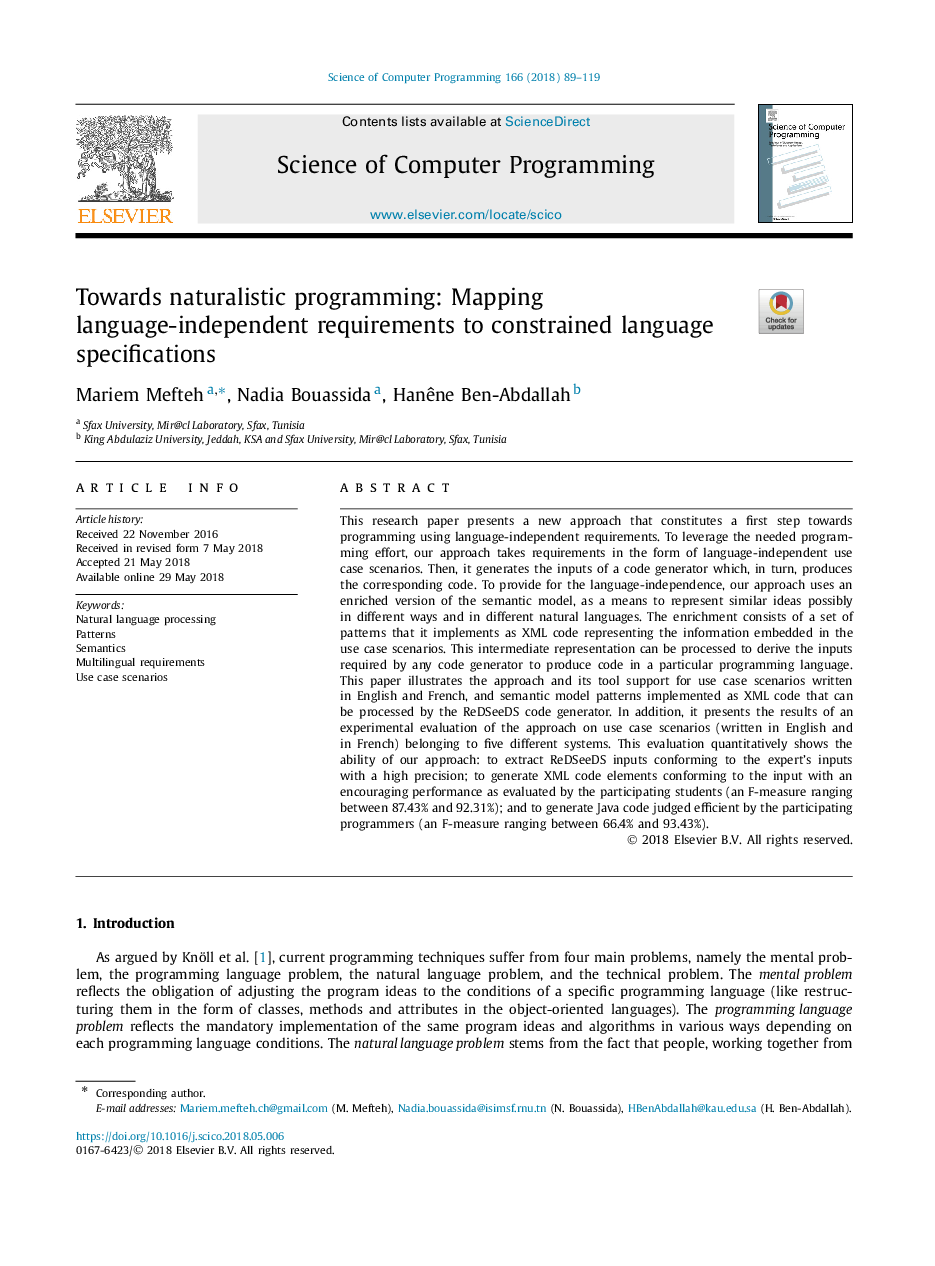| کد مقاله | کد نشریه | سال انتشار | مقاله انگلیسی | نسخه تمام متن |
|---|---|---|---|---|
| 6875157 | 1441583 | 2018 | 31 صفحه PDF | دانلود رایگان |
عنوان انگلیسی مقاله ISI
Towards naturalistic programming: Mapping language-independent requirements to constrained language specifications
ترجمه فارسی عنوان
به سمت برنامه نویسی طبیعی: نقشه های الزامات مستقل زبان به مشخصات محدود زبان
دانلود مقاله + سفارش ترجمه
دانلود مقاله ISI انگلیسی
رایگان برای ایرانیان
کلمات کلیدی
پردازش زبان طبیعی، الگوها، معناشناسی، الزامات چند زبانه، استفاده از سناریوهای مورد،
موضوعات مرتبط
مهندسی و علوم پایه
مهندسی کامپیوتر
نظریه محاسباتی و ریاضیات
چکیده انگلیسی
This research paper presents a new approach that constitutes a first step towards programming using language-independent requirements. To leverage the needed programming effort, our approach takes requirements in the form of language-independent use case scenarios. Then, it generates the inputs of a code generator which, in turn, produces the corresponding code. To provide for the language-independence, our approach uses an enriched version of the semantic model, as a means to represent similar ideas possibly in different ways and in different natural languages. The enrichment consists of a set of patterns that it implements as XML code representing the information embedded in the use case scenarios. This intermediate representation can be processed to derive the inputs required by any code generator to produce code in a particular programming language. This paper illustrates the approach and its tool support for use case scenarios written in English and French, and semantic model patterns implemented as XML code that can be processed by the ReDSeeDS code generator. In addition, it presents the results of an experimental evaluation of the approach on use case scenarios (written in English and in French) belonging to five different systems. This evaluation quantitatively shows the ability of our approach: to extract ReDSeeDS inputs conforming to the expert's inputs with a high precision; to generate XML code elements conforming to the input with an encouraging performance as evaluated by the participating students (an F-measure ranging between 87.43% and 92.31%); and to generate Java code judged efficient by the participating programmers (an F-measure ranging between 66.4% and 93.43%).
ناشر
Database: Elsevier - ScienceDirect (ساینس دایرکت)
Journal: Science of Computer Programming - Volume 166, 15 November 2018, Pages 89-119
Journal: Science of Computer Programming - Volume 166, 15 November 2018, Pages 89-119
نویسندگان
Mariem Mefteh, Nadia Bouassida, Hanêne Ben-Abdallah,
